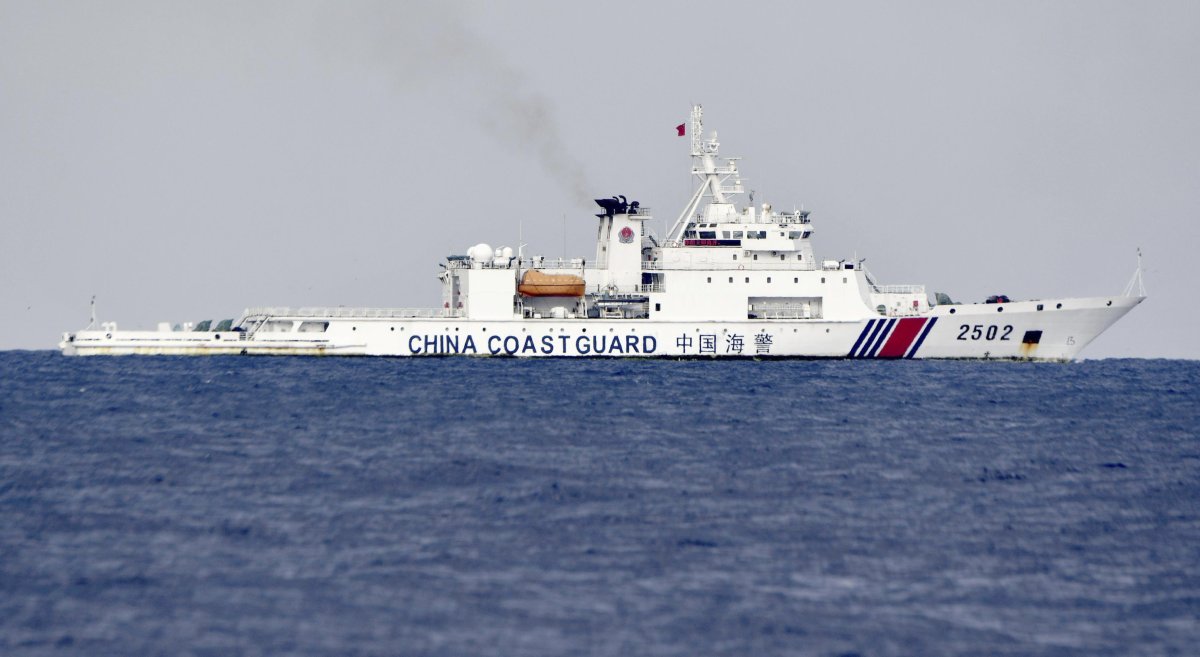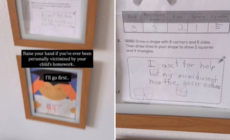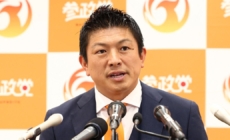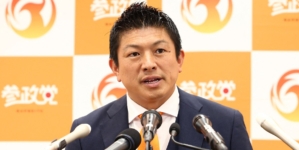-
Billy Joel reveals his heartbreak over divorce from Christie Brinkley - 19 mins ago
-
You’re more likely to win Powerball 100 times than do what this mom did - 40 mins ago
-
Mom Stuck on Homework—Not Ready for How Daughter ‘Exposes’ Her to Teacher - 42 mins ago
-
NASCAR Craftsman Truck Series: TSport 200 At IRP Highlights | NASCAR on FOX - 45 mins ago
-
Israel to allow aid drops in Gaza amid mounting outrage over hunger crisis - 53 mins ago
-
With Manifest Destiny, DHS goes hard on ‘white makes right’ - about 1 hour ago
-
Gwyneth Paltrow Takes On Surprise Role For Astronomer After Viral Video - about 1 hour ago
-
Layne Riggs & more post-race interviews from Lucas Oil Indianapolis Raceway Park | NASCAR on FOX - about 1 hour ago
-
Tesla adds Grok AI chatbot to newer vehicles for more engaging drives - 2 hours ago
-
Jessica Simpson finds her voice in Nashville for music comeback - 2 hours ago
China Accused of Airspace Violation Against US Ally
China and Japan have traded accusations of airspace violations near a group of islets in the contested East China Sea, currently administered by the United States treaty ally.
Tokyo severely protested China against infringement of its sovereignty, while Beijing urged Japan to cease “illegal activities” around the islands, which it claims as its own territory.
Why It Matters
The Senkaku Islands, also known as the Diaoyu Islands in China, have been the subject of controversy since Japan nationalized the previously privately owned, uninhabited islets in 2012, which Beijing responded to by conducting assertive patrols with its coast guard ships.
In February, the U.S. reaffirmed that the 1960 security treaty signed with Japan applies to the disputed Senkaku Islands. The treaty declares that an attack against either side in the territories under Japan’s administration “would be dangerous to its own peace and safety” and declares that the U.S. and Japan “would act to meet the common danger in accordance with [Japan’s] constitutional provisions and processes.”
What To Know
The Japanese Defense Ministry reported that a Chinese helicopter took off from one of four Chinese coast guard ships that had entered the 12-nautical-mile Japanese territorial waters around the Senkaku Islands and intruded into Japan’s sovereign airspace on Saturday.
The Japanese air force scrambled two fighter jets, with Japanese patrol ships warning the Chinese vessels to leave the territorial waters. The Chinese coast guard ships were later spotted retreating to the islands’ contiguous zone that extends 24 nautical miles from the coastline.
Meanwhile, the China Coast Guard said a Japanese civilian aircraft had illegally entered Chinese airspace over the islands, prompting the Chinese ships, which were conducting “a routine patrol,” to deploy a helicopter to issue a warning and drive the aircraft away.
Kyodo News via AP
According to the Chinese Foreign Ministry, the aircraft in question was piloted by what it called “Japanese right-wing extremists.” Japan’s Kyodo News reported that the country’s defense ministry was investigating a possible connection between the incident and a small civilian aircraft that was flying in the area at the time.
The China Coast Guard claimed that the patrol around the Senkaku Islands was carried out in accordance with the law, referring to the Coast Guard Law that was introduced in 2021, which gives permission to fire on foreign vessels within territorial waters claimed by Beijing.
On Sunday, the Chinese Defense Ministry reiterated that it was “legitimate and legal” for its coast guard to safeguard the country’s territorial sovereignty, demanding Japan restrain its citizens from conducting “provocative acts.”
Japan’s foreign ministry summoned Zhao Baogang, the acting Deputy Chief of Mission of the Chinese Embassy, after the incident, while Wu Jianghao, China’s ambassador to Japan, lodged a solemn representation with Takehiro Funakoshi, the vice foreign minister of Japan.

Kyodo via AP Images
What People Are Saying
Liu Dejun, spokesperson for the China Coast Guard, said: “The China Coast Guard will continue to conduct rights protection and law enforcement operations in the waters and airspace of [the Diaoyu Islands] to firmly safeguard China’s territorial sovereignty and maritime rights and interests.”
The Chinese Embassy in Japan said: “The Chinese side calls on the Japanese side to recognize the seriousness of the situation and take concrete measures to prevent the recurrence of similar incidents…If Japan takes new provocative moves, China will resolutely counteract them and firmly safeguard national sovereignty and maritime rights and interests.”
The Japanese Defense White Paper 2024 said: “China has been rapidly building up military capabilities while intensifying its activities in the East China Sea, where the waters surrounding the Senkaku Islands are, as well as in the Pacific.”
The U.S.-Japan joint leaders’ statement on February 7 read: “The two leaders reaffirmed that Article V of the U.S.-Japan Treaty of Mutual Cooperation and Security applies to the Senkaku Islands, and reiterated their strong opposition to any action that seeks to undermine Japan’s longstanding and peaceful administration of the Senkaku Islands.”
What Happens Next
China is likely to continue it coast guard patrols around the Senkaku Islands. It remains to be seen how the U.S. would support its ally in stepping up responses to protect the islands.
Source link































